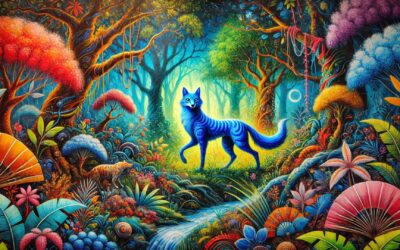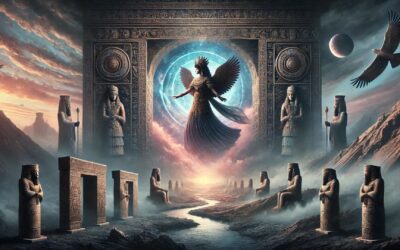The Gist
The Fountain of Youth—just saying it conjures images of a magical spring that promises to reverse the aging process, keeping those who drink from it forever young. For centuries, this idea has captivated explorers, adventurers, and dreamers alike. But where did this legend come from? And why has it persisted across cultures and time? The story of the Fountain of Youth is steeped in myth and history, blending the human desire for immortality with the real-life exploration of new worlds.
The Origins of the Fountain of Youth Myth
The legend of the Fountain of Youth can be traced back to ancient cultures, including the Greeks and Romans, who spoke of miraculous waters that could restore youth and vitality. However, the tale we often associate with the Fountain of Youth comes from Spanish lore and was popularized by the story of Juan Ponce de León, a Spanish explorer.
In the early 16th century, Ponce de León sailed from Spain to the New World in search of riches, adventure, and, according to some accounts, the legendary fountain. He had heard tales from indigenous peoples of a mystical spring located somewhere in what is now modern-day Florida. These stories likely fueled his desire to find the fountain and its promised gift of eternal youth.
While Ponce de León is often tied to this legend, historical records suggest that he was more interested in discovering new lands and securing wealth than in actually finding a magical fountain. However, the idea of an explorer seeking eternal youth made for a captivating story, and it has become a permanent part of his legacy.
The Fountain of Youth in Florida
Today, Florida is home to St. Augustine, a city that claims to be the site where Ponce de León first landed and where the Fountain of Youth might have been located. Visitors can explore the Fountain of Youth Archaeological Park, a historical site dedicated to the legend. Though modern science tells us that no such fountain exists, the park offers a glimpse into the power of myth and the human imagination.
The Fountain of Youth legend continues to captivate tourists and locals alike. But what’s fascinating is not just the allure of eternal youth, but the way this story reflects a deep, universal desire to stave off the inevitable passage of time.
Why Does the Fountain of Youth Matter?
At first glance, the Fountain of Youth might seem like just another fairy tale, but if you think about it, the legend speaks to something much deeper within human nature. We all wish we could hold onto our youth—whether through physical appearance, energy, or health. In our modern world, the quest for youth has taken new forms: anti-aging treatments, wellness routines, and scientific research into extending life expectancy.
Just as Ponce de León once sailed across oceans in search of this mythical spring, we, too, are on our own quests—though they look different today. The legend of the Fountain of Youth serves as a reminder that while it’s natural to want to hold onto our youth, it’s also essential to appreciate the time we have and the experiences we gain along the way.
Real-Life Lessons from a Mythical Fountain
The Fountain of Youth may not exist, but its lesson is timeless. While you can’t stop time or undo aging, you can take steps to stay mentally and physically vibrant. Staying curious, continuing to learn, and nurturing your body through healthy habits are ways to keep your spirit young.
In a way, the real “fountain of youth” isn’t found in a magical spring—it’s found in how we choose to live our lives. Those who embrace change, stay active, and find joy in the everyday moments often seem to age slower in both body and mind. So, while you may not discover a mythical fountain, you can certainly create your own path to staying youthful.
Take Action: Create Your Own Fountain of Youth
The legend of the Fountain of Youth teaches us that while the search for eternal life may be a myth, living fully and healthily is within our grasp. Instead of chasing after elusive springs or impossible ideals, focus on what truly makes you feel alive.
In your everyday life, ask yourself: What makes you feel youthful? Is it learning something new? Is it staying active or finding ways to care for your well-being? By taking small steps to nurture your body and mind, you can create your own version of the Fountain of Youth—one that doesn’t promise immortality but enriches every moment of the life you’re living right now.
Expand Your Vocabulary
- Fountain of Youth: A mythical spring that is believed to grant eternal youth to anyone who drinks from it. In everyday language, it’s used metaphorically to describe something that makes someone feel young or rejuvenated, like, “Exercise is my personal fountain of youth.”
- Myth: A traditional story, often involving supernatural elements, used to explain a natural phenomenon or cultural belief. You might say, “The idea that you need eight hours of sleep every night is more myth than fact.”
- Explorer: Someone who travels to new or unfamiliar places to discover them. In real life, we use it for people seeking new experiences or knowledge, like, “She’s an explorer at heart, always trying new things.”
- Eternal Youth: The concept of staying young forever. In modern usage, it can refer to someone’s youthful energy or appearance, like, “Her positivity gives her an air of eternal youth.”
- Legend: A traditional story that is popularly regarded as historical but is often unauthenticated. People often use it when discussing well-known, sometimes exaggerated, tales, like, “The legend of this place says it’s haunted.”
- Indigenous: Refers to the original inhabitants of a place. You might use it in conversation like, “The indigenous plants of this region thrive without much water.”
- Archaeological: Relating to the study of human history through excavations and artifacts. For example, “The archaeological dig revealed ancient pottery from a lost civilization.”
- Immortality: The ability to live forever. In everyday language, it’s sometimes used to describe someone’s lasting impact, like, “His contributions to science have given him a form of immortality.”
- Vitality: The state of being strong and active; energy. You might hear it used in contexts like, “Her vitality at 80 is inspiring—she still runs marathons!”
- Rejuvenation: The process of making someone or something look or feel younger, fresher, or more lively. In a sentence, “A weekend at the spa gave her the rejuvenation she needed.”
Let’s Talk
- The Fountain of Youth represents humanity’s desire to live forever. How do you think this desire shapes the way people approach life today?
- How does the idea of eternal youth differ from the reality of aging? Do you think the pursuit of staying young can sometimes distract us from appreciating the present moment?
- Ponce de León’s search for the Fountain of Youth reflects a larger human drive to explore the unknown. What are the “Fountains of Youth” that we seek in modern life—things that promise to make us feel better, look younger, or live longer?
- The legend of the Fountain of Youth is deeply tied to Florida’s history. How do you think myths and legends shape our understanding of certain places or cultures?
- If you could drink from the Fountain of Youth, would you? Why or why not? What are the potential benefits and drawbacks of never aging?










0 Comments